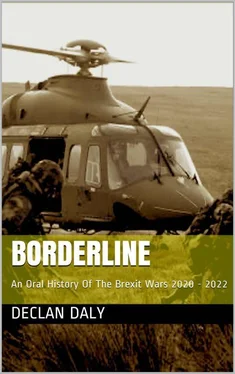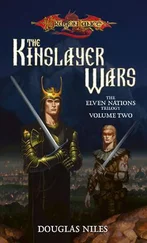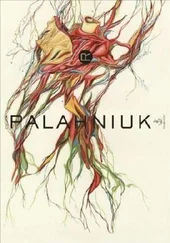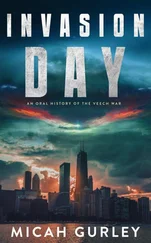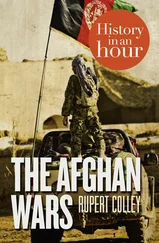Then the world was struck by the coronavirus pandemic. The world suffered, Europe suffered, Russia suffered, and the UK suffered. It is now believed, that Russian policy was that, in order to hold position economically and politically on the world stage and perhaps even advance itself further, the campaign against Western Europe should be moved to a new level. By distracting Europe and damaging it, Russia would have a freer hand in the ‘near abroad’, the area that Russia believed fell under its own sphere of influence in eastern Europe and elsewhere. By distracting and potentially damaging the integrity of the UK, it could prevent it from emerging as a competing player in the event of a best-case scenario Brexit. Northern Ireland presented itself as a two for the price of one deal in this assessment.
With existing sectarian history to ignite, Russia began a directed online campaign, targeting those people who could be used by them to best affect, Kompromat was used to silence those who could best oppose those voices at a social level. In choosing to arm the IRA, it seems now, – but may never be confirmed – that they were chosen because they already had a residual command structure in place, even if they had no remaining paramilitary force to speak of. Simply put, they represented the quickest way of starting an armed conflict in Northern Ireland. This activity obviously soaked up the attention of the security services and obscured the fact that men and women of fighting age were disappearing for months at a time before reappearing and leading very different lives.
Such a return to conflict of course affected the Republic of Ireland. ‘But we’re neutral’ was often the refrain when the extent of outside interference in our domestic affairs became known. In response, I can do little better than quote Comdt Dave Heally when I asked him about the general public discussion he encountered as a member of the DF:
‘People would say ‘but we're neutral’ as if this meant anything, as if simply professing neutrality was a shield that would ward off all aggression. And it was infuriating to try and say this over and over again; that you had obligations if you're neutral that, you know, just saying it wasn't enough you had to back it up by providing security and people just wouldn't get it, would not get it at all. If you look back in time towards, say, when Lemass for example was saying that we had no problem with joining NATO, the only problem at the time was obviously that, at that time, we had contested ownership of Northern Ireland, but people forgot that or just didn’t know.
Neutrality, or the perception of neutrality, had become such a revered institution in Irish culture and mentality that people just never questioned whether it would actually work. Whether or not you would have to update the way you approached the whole subject, but people just couldn't grasp it, could not grasp that this wasn't some eternal thing that would shine a light and shoo off all darkness.
The best analogy that would work with most people, that I could eventually think of, was the ‘Sleep when the baby sleeps’ analogy. What this was, I just compared it to when you have a new baby in the house and especially if you've got a couple of kids already and you're exhausted, you're fatigued, you've just gone back to work people are saying ‘how you're going?’ and you go ‘I'm tired’ and, some well-meaning soul, they’ll say ‘just sleep when the baby sleeps’. As if nothing else needs to be done in the house, as if this glorious little notion of sunlit information, hadn't penetrated the sleep deprived depths of exhaustion that you're suffering through, and you know then; straight away; that nothing you say to this person will work. That you're just so completely in different places in terms of the life experience that you're going through and most new parents can relate to that. And that's what I would say to people: ‘but we’re neutral’ is the ‘sleep when the baby sleeps’ of the whole Defence discussion. If that's where you are, you're so far behind the ball that you're just never going to catch up to where things are now, not without listening to the experts in the field. Neutrality wasn't going to ward off anything and it certainly wasn't going to ward off the intentions of a country that just saw starting an insurrection and violence as something that would protect its own interests elsewhere.’
Neutrality then, was not a shield. But why did the Gardai, who were responsible for internal security, and the Defence Forces not lock down the border as soon as violence broke out? The answer is unfortunately simple – it would never have been possible. People almost always cast their minds back to the era of the Troubles when they ask this. They forget that both organisations had shrunk dramatically since then. The Defence Forces of the 80s had an establishment of 14,500. The same organisation at the onset of violence was understrength and under resourced and far short of its promised establishment of 9,500. It resembled more the army of 1969 in terms of resourcing and numbers than the one that was eventually cut to pieces in various cost saving efforts and ‘peace dividends.’
Add to this that the reorganisation of 2012 cut away the border barracks and battalions in order to preserve core units and that various specialties within the DF were critically understaffed – Air Corps Captains, the people who filled out many of the operational rosters in that service, were at 62% of establishment in August 2020 for example – and you found an organisation that was already under significant stress just to tread water, before having to tackle the extra requirements of a war at home.
Gardai were faring little better. Against a promise to put an extra 200 hundred new gardai into border regions in the early part of 2020, in fact Gardai were being sent from the college in Templemore before they had finished training, purely to deal with the coronavirus pandemic all over the country. The administrative backlog this created, as well as a reduction in the experience levels of a force based on community policing, cannot be overstated. Dealing with all of this absorbed the capacity of the various HQs just as much, if not more, than operational issues.
By simply not having the manpower, and no way to magically produce trained personnel, a total lockdown of the border, a check every vehicle, stop every hiker effort was just not possible. The counter to this is that from this poisoned acorn, something great did emerge but it all took time. Time in which the existing personnel would have to hold the line such as they could.
As to why the IRA chose a return to violence. Simply by having weapons, they became a target for the other republican groups who had remained active over the years as a source of weapons and eventually the new Northern groups as well. These groups and the PSNI began to squeeze the border based IRA from the North at the same time as Gardai and the DF began to squeeze them from the South. Having been monitored so much for the preceding twenty years, their membership was well known, and they needed new cells for security reasons, for operations and in order to control the border area. Recruitment meant having to be relevant in a world where sectarian tensions were being stoked from abroad via social media. Relevance meant violence. Deterring enemies meant violence. Control meant violence.
In the shadow world they existed in, simply living meant having to show your teeth and this they did. Early notions that some of their membership could sustain the peace process if protected were swiftly abandoned once it became clear that they were intrinsically involved in the resurgence of pain that was happening throughout both Northern Ireland and Ireland itself. It was at this point that the Black Winter really began.
Читать дальше
